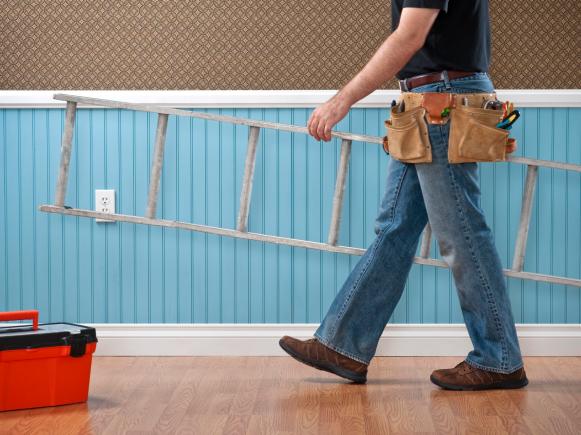How to Choose a Remodeling Contractor
It takes a little legwork to find the best person for your renovation job. Here’s how to handle the task.
By: Alicia Garceau

Word of mouth-hands down, is the best way to find a qualified professional to tackle the job. Ask relatives, friends and neighbors whom they’ve had good experiences with. And ask what made it a positive experience, how the contractor handled problems and whether he or she would use the same contractor again.
With recommendations in hand, do some preliminary research, whether it’s with a phone call or a visit to the contractor’s website. Find out whether he or she holds all the required licenses from state and local municipalities, along with designations from any professional associations such as the National Kitchen & Bath Association, the National Association of the Remodeling Industry and the National Association of Homebuilders. Look for contractors who have invested in course work and passed rigorous tests to earn particular certifications. Be aware, however, that not all certifications are created equal. Do some homework and find out the requirements.
Narrow down the list of contenders and set up meetings. Try to keep it to three contractors, because things can get confusing beyond that. How a contractor answers questions is extremely important, but communication goes both ways. Candidates should ask plenty of questions, too.
Ask to see some of the contractors’ projects. If you approve of them, request references and call contractors’ former customers to check up on them. Ask how the contractors did at executing the projects. Were they on time and on budget? Were the customers pleased with the outcome? Was there anything that could have been done differently?
Does the remodeler:
After selecting a contractor, take a look at the documents he or she has prepared. Do they look professional? Scrutinize the contract. Does it seem fair and balanced? And make sure the legal agreement includes the following:
- a bid price and payment schedule
- specifics about the scope of work
- the site plan
- a sequential schedule of primary construction tasks
- a change-order clause
- a written procedural list for close-out
- an express limited warranty
- a clause about dispute resolution
- a waiver of lien, which would prevent subcontractors and suppliers from putting a lien on a house should their invoices go unpaid by the contractor
Author: UI Construction on Google+